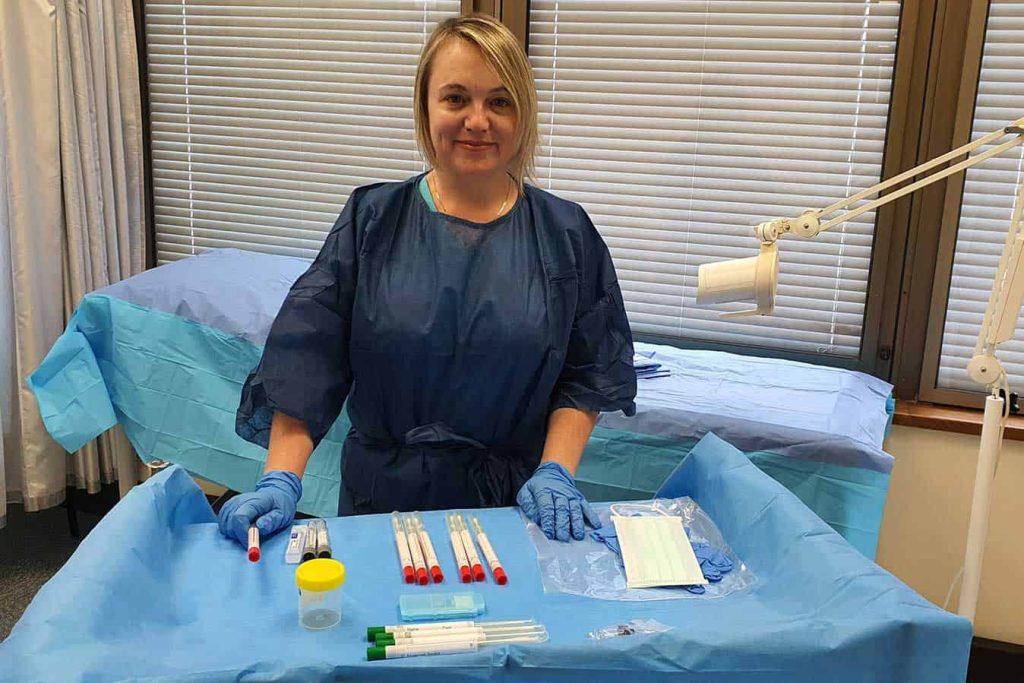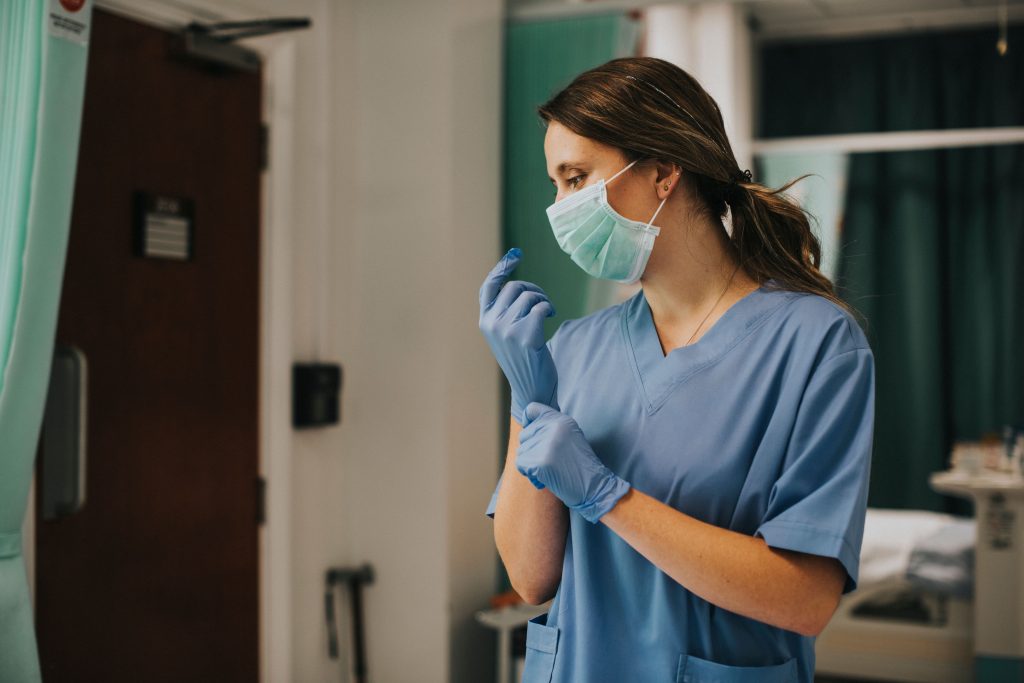What Forensic Nurses Do: Specialisation, Qualification, Salaries, and Duties in Australia
Forensic nursing is a unique and specialized branch of nursing that combines healthcare with the criminal justice system. Forensic nurses play a crucial role in the treatment of patients who are victims of violence, abuse, or trauma, while also assisting in the investigation of crimes. They work in a variety of settings, such as hospitals, legal environments, and correctional facilities, helping bridge the gap between healthcare and the law. In Australia, forensic nursing is becoming an increasingly important field, with opportunities for those interested in both healthcare and law enforcement. This article will explore what forensic nurses do, their specialisations, qualifications, salaries, and duties in Australia.

Forensic Nursing in Australia
1. Specialisations in Forensic Nursing
Forensic nurses in Australia can choose to specialise in various areas based on their interests and skills. Some common specialisations include:
- Forensic Nurse Examiner (FNE)
Forensic Nurse Examiners are specialized nurses who provide medical care to victims of sexual assault, domestic violence, and other violent crimes. They collect evidence, document injuries, and work closely with law enforcement to ensure that evidence is preserved for criminal investigations. FNEs often play a pivotal role in legal proceedings by testifying in court as expert witnesses regarding the forensic evidence they have collected. - Sexual Assault Nurse Examiner (SANE)
A Sexual Assault Nurse Examiner (SANE) specialises in caring for patients who have experienced sexual assault. SANEs are trained to conduct thorough forensic examinations, collect forensic evidence (such as DNA samples and photographs of injuries), and provide emotional and psychological support to survivors. SANEs also collaborate with law enforcement and legal professionals during investigations and trials. - Forensic Psychiatric Nursing
Forensic Psychiatric Nurses work with individuals who have committed crimes and may have mental health conditions. They provide psychiatric care, assess risk, and contribute to the management of patients within forensic settings, such as psychiatric hospitals or correctional facilities. These nurses play a key role in the rehabilitation process, providing care for those involved in the criminal justice system with psychiatric conditions. - Correctional Nursing
Forensic nurses also specialise in correctional nursing, providing care to incarcerated individuals. They are responsible for assessing and treating physical and mental health issues within correctional facilities, while also managing the unique challenges of working with inmates. Correctional nurses often deal with issues such as addiction, mental health disorders, and injuries resulting from violence. - Death Investigation Nursing
Some forensic nurses specialise in death investigations, where they work with medical examiners, coroners, and law enforcement to determine the cause of death. They may assist in autopsies, collect forensic evidence from deceased individuals, and provide expert testimony in court regarding their findings.
2. Qualifications Required for Forensic Nurses in Australia
Becoming a forensic nurse in Australia requires a combination of nursing qualifications, specialised training, and experience. The steps to becoming a forensic nurse typically include:

- Bachelor of Nursing
The first step is to complete a Bachelor of Nursing degree, which is usually a three-year program at a university. This degree provides foundational knowledge in nursing, anatomy, physiology, patient care, and medical ethics, and prepares graduates to work as registered nurses in a variety of healthcare settings. - Registered Nurse (RN) Registration
To practice as a nurse in Australia, you must be registered with the Nursing and Midwifery Board of Australia (NMBA). This registration ensures that you meet the competency standards required to practice safely and competently in the healthcare sector. - Specialised Forensic Nursing Education
After becoming a registered nurse, those interested in forensic nursing will typically pursue specialised postgraduate education. Many universities offer Graduate Certificates or Graduate Diplomas in forensic nursing, which provide advanced knowledge and skills in areas such as forensic examination, evidence collection, and working within the criminal justice system. A Master of Forensic Nursing is also available for nurses wishing to gain a higher level of expertise. - Clinical Experience
While forensic nursing training is important, hands-on experience in both healthcare and legal environments is equally crucial. Many forensic nurses begin their careers in traditional nursing roles, such as emergency nursing or psychiatric nursing, before transitioning into forensic specialties. Clinical placements in areas like sexual assault services, correctional facilities, or emergency departments can provide valuable experience for those interested in forensic nursing. - Certifications in Forensic Nursing
Forensic nurses in Australia can pursue certifications to demonstrate their expertise and commitment to the field. Certifications such as the Sexual Assault Nurse Examiner (SANE) credential or Forensic Nurse Examiner (FNE) certification can help increase job opportunities and professional credibility. These certifications typically require a combination of training, clinical experience, and examination. - Continuing Professional Development (CPD)
Forensic nurses must engage in Continuing Professional Development (CPD) to stay current with advancements in forensic care, legal regulations, and best practices. This may include attending workshops, conferences, or additional coursework related to forensic nursing and healthcare law.
3. Duties and Responsibilities of Forensic Nurses
Forensic nurses have diverse duties depending on their area of specialisation, but some common responsibilities include:
- Patient Care and Support
Forensic nurses provide comprehensive care to patients, particularly those who have been victims of trauma or violence. They assess patients’ physical and psychological health, manage injuries or illnesses, and offer emotional support during what can be a very difficult time. - Collecting Forensic Evidence
Forensic nurses are trained to collect physical evidence from patients that may be used in legal investigations. This may include taking photographs of injuries, collecting blood, hair, or other bodily fluids, and documenting injuries. Nurses ensure that all evidence is preserved according to legal guidelines and chain of custody requirements. - Providing Expert Testimony
Forensic nurses often serve as expert witnesses in court, explaining the medical aspects of the evidence they have collected. They may be asked to testify about the nature of injuries, the collection of forensic evidence, or the psychological impact of trauma on victims. - Collaborating with Law Enforcement
Forensic nurses work closely with law enforcement officers, medical examiners, and legal professionals. They may assist in investigations by providing critical medical information, documenting injuries, and ensuring that patients’ rights are upheld during the process. - Patient Education
Forensic nurses educate patients about their rights, the legal process, and any ongoing medical care they may require. This may include explaining how evidence collection works, the implications for an investigation, and providing referrals to support services. - Maintaining Confidentiality and Documentation
Forensic nurses must ensure that all patient records are kept confidential and are accurately documented. They adhere to strict legal and ethical guidelines regarding patient privacy and information sharing, which is critical in forensic cases.
4. Salaries and Job Outlook for Forensic Nurses in Australia
Forensic nursing is a highly specialised field, and the salaries can vary based on experience, location, and level of specialisation. However, salaries for forensic nurses in Australia tend to be competitive.
- Salary Range
A Registered Nurse (RN) in Australia can expect to earn between AUD 65,000 to AUD 85,000 annually on average. However, forensic nurses, particularly those with specialised certifications or experience in areas such as sexual assault nursing or forensic psychiatry, can earn higher salaries. Forensic nurses in specialised roles or those in senior positions may earn AUD 90,000 to AUD 120,000 annually. - Specialisation and Experience
Forensic nurses who specialise in areas like sexual assault examination, trauma care, or forensic psychiatry often receive higher salaries due to the advanced training required. Additionally, nurses with more years of experience in the field may see an increase in their earning potential. - Location
Salaries for forensic nurses can also vary depending on location. Nurses working in metropolitan areas, such as Sydney or Melbourne, may earn higher salaries due to the cost of living. Conversely, nurses working in rural or remote areas may receive additional incentives or allowances to attract them to these locations. - Career Advancement
Forensic nurses who take on leadership or management roles, such as becoming a nurse manager or clinical educator, may earn significantly higher salaries. Career progression can also be achieved by pursuing higher qualifications or gaining more experience in specialised areas of forensic care.
5. Job Opportunities and Demand
The demand for forensic nurses is expected to grow in Australia, especially as awareness of the importance of healthcare in the criminal justice system increases. Forensic nurses are employed in a variety of settings:

- Hospitals and Emergency Departments
Forensic nurses are often employed in emergency departments or specialized sexual assault services, where they are responsible for assessing and treating patients while collecting forensic evidence. - Police and Correctional Facilities
Forensic nurses may also work in law enforcement settings, including police stations or correctional facilities, where they provide medical care to victims of crime or incarcerated individuals and contribute to investigations. - Legal and Forensic Organisations
Some forensic nurses work as independent consultants for law enforcement or legal organizations, providing expert testimony, conducting investigations, or offering training.
Conclusion
Forensic nursing is a rewarding and specialised field that combines healthcare with the criminal justice system. Forensic nurses play a vital role in treating and supporting patients who are victims of crime, while also helping to ensure that forensic evidence is properly collected and maintained for legal proceedings. With a strong job outlook, competitive salaries, and opportunities for career advancement, forensic nursing offers a fulfilling career for those interested in making a significant impact at the intersection of healthcare and law enforcement. By obtaining the right qualifications, specialisations, and certifications, nurses can excel in this challenging yet rewarding field in Australia.

